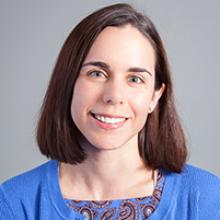Beyond Accountability: Improving the Use of Information to Support Teaching and Learning
States and school districts have made significant investments in systems to measure teacher performance, with the ultimate goal of improving student learning. Ideally, these systems give teachers timely, actionable data about their professional practices; districts then help teachers strengthen their practices, and educators monitor how improvements affect student learning.
However, not all systems work that way. In some instances, compliance and accountability, rather than teachers’ professional development and growth, tend to be the focus. Further, components of evaluation systems are not always well aligned with other district goals and priorities outside of the system, such as rigorous, standards-based instruction.
In 2016 and 2017, AIR collaborated with four school districts in four different states to identify and address problems of practice with the districts’ teacher evaluation and support systems, and the use of information from these systems to drive opportunities for professional growth and improving practice. The Beyond Accountability project, funded by the Bill & Melinda Gates Foundation, aimed to improve instructional quality, increase teacher satisfaction with opportunities or mechanisms to improve their practice, and increase district capacity to engage in improvement efforts.
The project employed a continuous improvement approach, specifically plan-do-study-act (PDSA) cycles. Each district identified a specific challenge and conducted a root-cause analysis. Through an iterative process, each district developed, tested, and revised a strategy to address the challenge. With support from AIR, each district collected and analyzed outcome data to inform revisions to the strategy.
AIR provided technical assistance and support within each district to conduct PDSA cycles, particularly in defining and reviewing data on the effectiveness of the strategies each district tested. In addition, AIR brought the district teams together through in-person and virtual meetings to share information, get feedback from one another, and learn about new or relevant resources and research.
